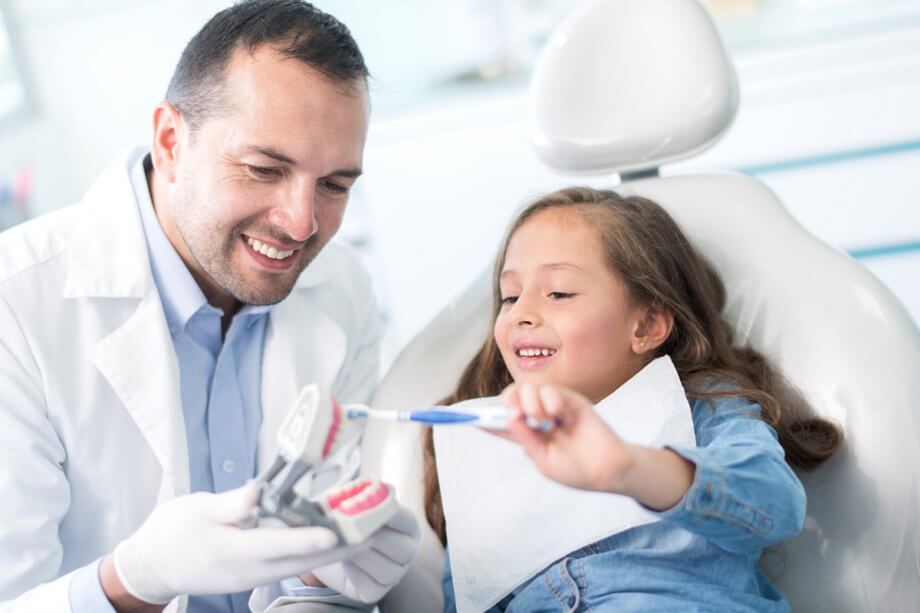By introducing teeth brushing in your baby's life as soon as possible, you can help prevent the future onset of dental issues. Good pediatric dental care can set your child up for a lifetime of good dental care and a healthy smile.
When should parents start brushing their child's teeth, and how should it be done?
When Do Baby Teeth Appear?
Baby teeth, also known as deciduous or primary teeth, are the first set of teeth that appear in children.The first baby tooth usually appears between 6 and 10 months of age, although some babies develop a tooth sooner or later than this.
Baby teeth tend to fall out once children reach adolescence or early teenage years. By then, the adult teeth will be fully developed.
Start a Brushing Regimen Early
The American Academy of Pediatric Dentistry recommends that you begin cleaning a child's gums with a soft-bristled toothbrush when the first tooth appears, or around six months of age.
You can use water or a small amount of fluoride-free toothpaste on a soft-bristled toothbrush to clean their gums if they are still sore from teething. Do not use fluoridated toothpaste until the child is at least two years old because swallowing too much fluoride can harm children under age 4.
Preventing Cavities in Baby Teeth
In early childhood, the mouth is vulnerable to dental disease. Baby teeth are essential for chewing and speaking and support the permanent teeth. The loss of a few baby teeth can disrupt the development of the surrounding permanent teeth. This is why it's imperative to provide good oral hygiene care for your children.
Treating cavities in children may not be easy. Since young children don't understand what’s happening, their cooperation tends to be limited. However, with proper guidance and persistence, you can help your child take care of their teeth from an early age.
Just like adults, babies need their teeth brushed twice a day to keep cavities at bay. As your baby's motor skills develop, you can gradually encourage them to brush their teeth while you supervise.
Because babies are going through a period of development that makes them more susceptible to bacteria, baby teeth can be prone to cavities. In addition, babies are constantly putting pacifiers and toys into their mouths, which can cause even more bacteria and plaque buildup.
Prevention is critical when it comes to baby teeth. If you start early with good dental habits, you can help prevent future problems like cavities and gum disease.
The Importance of Baby Teeth in the Development of Healthy Adult Teeth
If a child has an untreated cavity in a baby tooth, the tooth may fall out before the permanent tooth is ready to replace it.
If a permanent tooth is not allowed to erupt through the gums at its normal time, it may disrupt bite formation or alter its normal shape.
Baby teeth help guide permanent teeth through the jawbone. If a missing baby tooth disrupts this process, it can cause problems with permanent tooth eruption. A misaligned bite can result in abnormal wear on your child's teeth that can lead to crooked teeth or crowding issues later in life.
When Should I Schedule My Child’s First Dentist Visit?
The American Academy of Pediatric Dentistry recommends that your child see the dentist by age one. Still, if you notice that your child has any dental problems, you should contact the pediatric dentist immediately.
Schedule an Appointment With a Pediatric Dentist in Brooklyn or Pomona
You can do a lot as a parent to ensure your child's teeth will be healthy into adulthood. The pediatric dentists at A&R Advanced Group can help you set up your child for a lifetime of good dental care and healthy adult teeth.
To learn more or schedule an appointment with our Brooklyn or Pomona pediatric dentist, contact us today.

